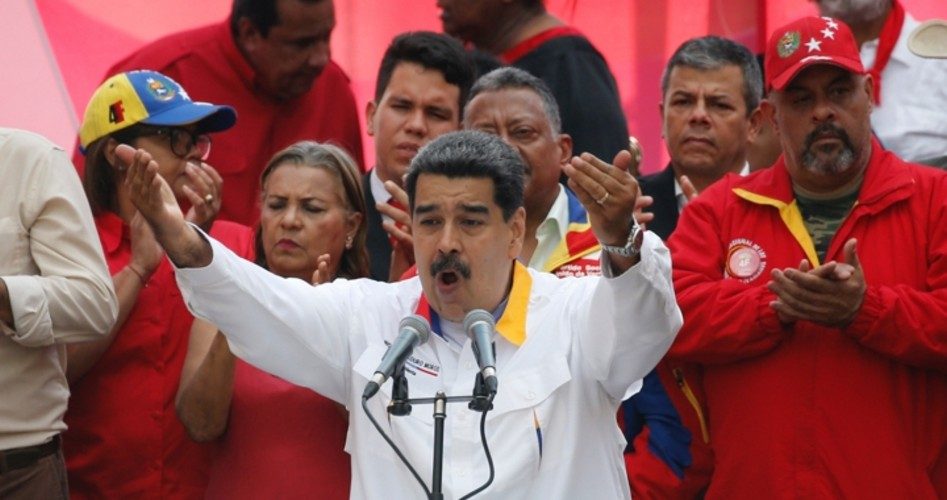
Venezuela’s Marxist dictator Nicolás Maduro hasn’t paid Rostec, Russia’s state-controlled military contractor, for months, so the company is pulling the plug, according to the Wall Street Journal. That contractor has been providing vast military armaments and other materiel to Maduro’s regime, including Kalashnikov rifles, helicopters, tanks, and aerial defense systems. It has also, until recently, had about 1,000 technicians in place to train Venezuelan military personnel how to maintain that high-tech equipment. Now, said the Journal, that number has been reduced to just a few dozen.
U.S. sanctions, particularly on Maduro’s Central Bank of Venezuela, have made it all but impossible for the bank to sell off what remains of the country’s gold reserves to raise the cash to pay Rostec’s bills.
Wrote the Journal’s investigative reporter Thomas Grove: “A person close to the Russian government said Rostec weighed the political benefits of supporting Maduro against the regime’s growing economic liabilities, forcing the company to make a strategic decision on [its] ties with Caracas.” That person added: “They [Rostec] believe that the fight [to keep the Maduro regime functioning] is being lost.… Since the Venezuelans aren’t paying, why should Rostec stay there and foot the bill on its own?”
Rostec is also facing its own financial problems thanks to those same U.S. sanctions. Those sanctions have impacted pending deals with other countries as well as agreements with Maduro. Longstanding plans to build a Kalashnikov production facility in Venezuela have been canceled, along with other plans, as the company makes its exit. Kuwait has delayed its agreement to purchase T-90 tanks from Rostec while Indonesia has backed off on a deal to purchase Russian Su-35 fighters from the contractor. The Philippines announced that it was canceling plans to purchase a “package” of Russian arms and materiel from Rostec.
Rosneft, the Russian-controlled energy company, has made enormous investments in partnership with Maduro’s oil company PdVSA, which are much more difficult to walk away from. But as oil production continues to dwindle away to a mere trickle, Rosneft is no doubt having second thoughts about continuing to fund its one-way street with Maduro.
Existential questions are building for the Marxist dictator. If he can’t pay Rostec, how can he pay his military? Without Rostec’s technicians, how long will his military’s high-tech equipment remain operable? If he can’t pay Rostec, how can he continue to pay for foodstuffs being arranged by his friend Alex Saab Moran, the Colombian drug lord in charge of Maduro’s emergency food program, CLAP?
In a dictatorship, loyalty is obtained through fear and greed. As Bueno de Mesquita, a political science professor at New York University and author of The Dictator’s Handbook, expressed it:
As long as the senior members of the military are getting paid, Maduro is going to stay. It is really a question of whether the flow of money can continue in a reliable way to the senior civil servants, to the military generals and to the judges. If the answer is yes, then the leaders may continue with Maduro.
On the other hand if the answer is no then the corrupt regime that has bankrupted Venezuela and sent its people back to the dark ages is entering its final stage of existence.
Photo: AP Images
An Ivy League graduate and former investment advisor, Bob is a regular contributor to The New American, writing primarily on economics and politics. He can be reached at [email protected].
Related articles:
U.S. Threats and Sanctions Forcing Venezuela’s Maduro to Negotiate



